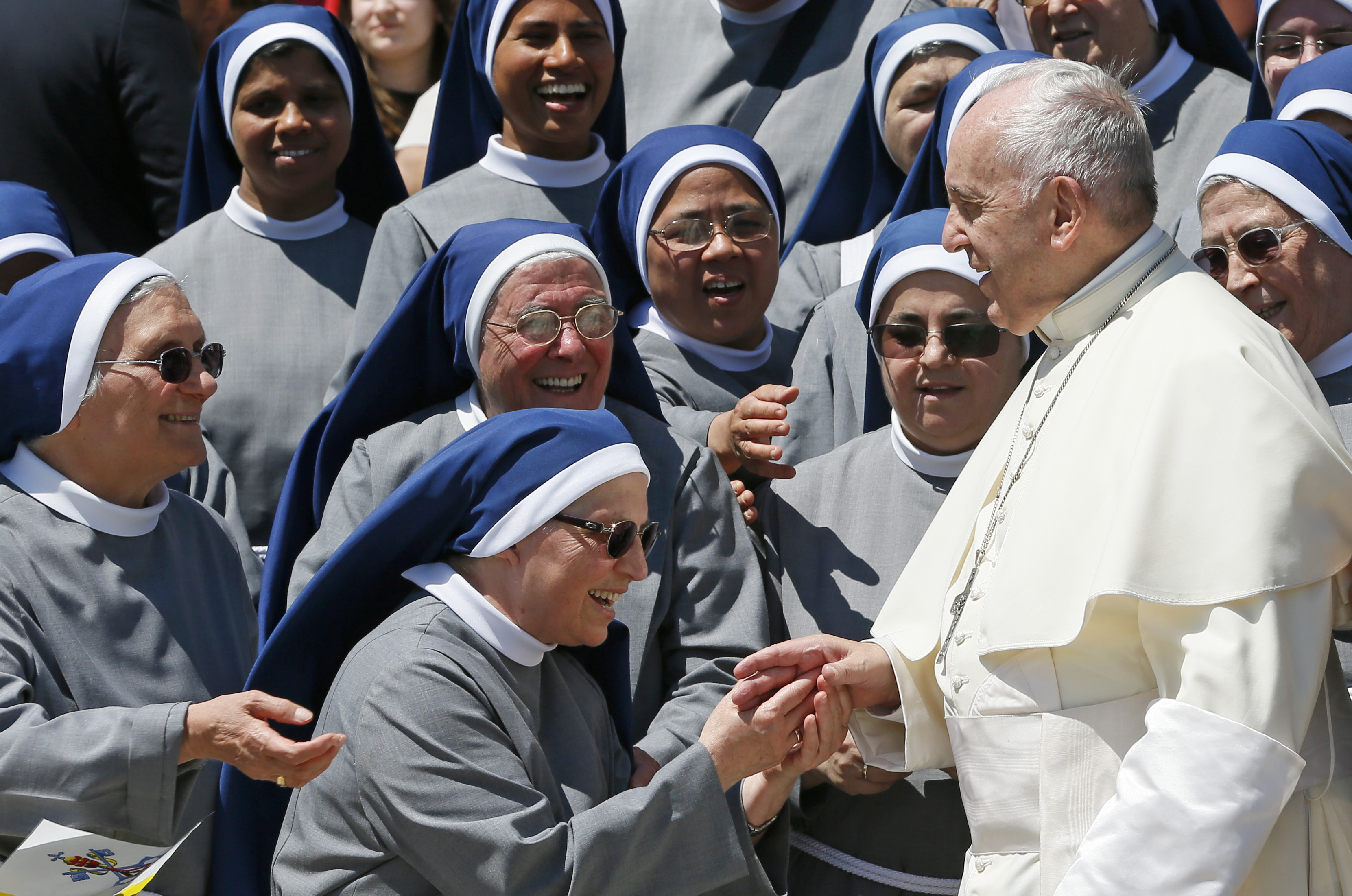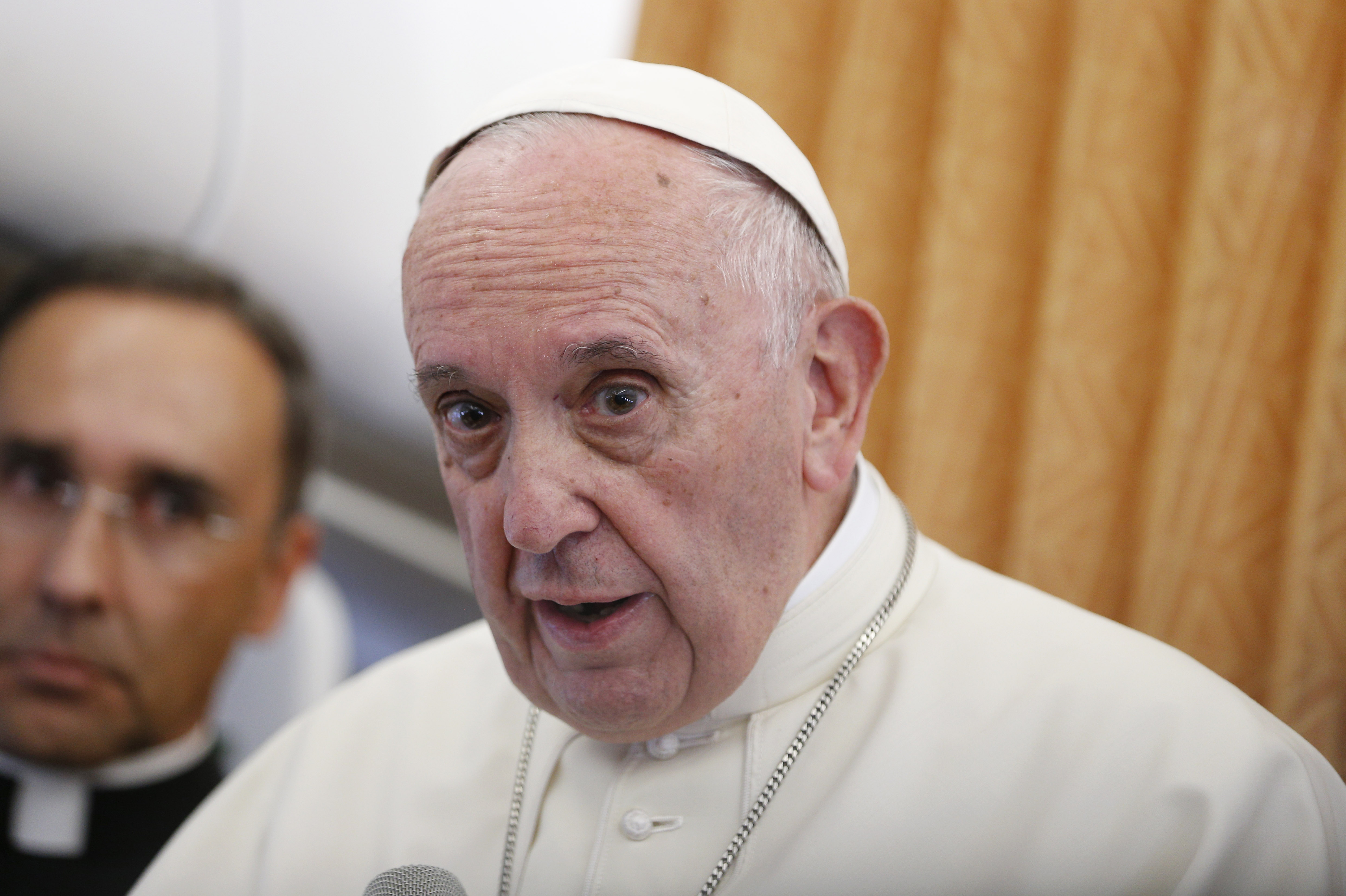The leadership of the German bishops’ conference today issued a statement saying that they are determined vigorously to pursue the initiative on intercommunion that they launched after their plenary in February this year. The initiative, they said is aimed at producing “greater unity” between Christian Churches. In Germany the vast majority of mixed marriages, couples the handout seeks to accommodate, are between Catholics and Lutherans.
“It is important for us that we are on an ecumenical quest to achieve a more profound understanding and even greater unity among Christians, and we consider ourselves to be obliged to stride forward in this matter courageously,” the permanent council of the conference said. The council is made up of the current 26 diocesan bishops, out of a total conference membership of 66.
A decision to help mixed-denomination couples to both receive communion, and an associated handout for parishes, was approved at the bishops’ conference’s spring plenary on 22 February by a two-thirds majority, and has since proved highly controversial. One month later, on 22 March, seven bishops, including Cardinal Rainer Maria Woelki of Cologne, Germany’s largest diocese, sent a letter to the Congregation for the Doctrine of the Faith (CDF) in Rome asking for clarification as to whether the issue was within the competence of a local bishops’ conference or rather a matter for the Universal Church.
On 19 April the German bishops announced that Pope Francis had called conference president Cardinal Reinhard Marx, Cardinal Woelki, and Bishop Felix Genn of Münster – a well-known mediator – to Rome. Bishop Rudolf Voderholzer of Regensburg, one of the seven bishops who signed the letter to Rome asking for clarification on the competence of a local bishops’ conference on the mixed-marriage issue, explained on his diocesan website that he and the other six bishops wanted to act “in accordance with all the other bishops’ conferences in the World Church” and were against the German Church going it alone.
After the 3 May meeting between the CDF and the delegation of German bishops, the Pope reportedly told the bishops to go away and find as much unanimity as possible. But a letter from the CDF Prefect Cardinal-elect Luis Ladaria dated 25 May, which reached Cardinal Marx on 4 June, informed him and the bishops that Francis had ruled against publishing the handout on the grounds of preserving the integrity of Catholic doctrine and unity. Pope Francis expanded on this in the press conference on the plane back from Geneva to Rome last week, saying he supported the 25 May letter from Ladaria requiring a rethink of the handout’s proposals and that Ladaria had written it with the Pope’s permission. The letter said that the handout was “not mature enough to be published”.
Francis reaffirmed on the plane that under the Code of Canon Law, it is up to the local bishop to decide under what conditions communion can be administered to non-Catholics, and not up to local bishops’ conferences.
The problem with having an entire bishops’ conference deal with such questions is that “something worked out in an episcopal conference quickly becomes universal”, he said.
However he went on to praise the bishops’efforts, saying their document was “well thought out with a Christian spirit”.
Whatever the German conference may come up with in the end, he said, will likely be “an orientational document so that every one of the diocesan bishops can determine by himself what the Code of Canon Law already permits.”
In their statement today the council said that Cardinal Marx “has informed the Permanent Council of the discussions that took place in Rome”. It said Marx was able to clarify at a meeting with Pope Francis that the CDF letter of 25 May “provides indications and a framework for interpretation”; that the text of the handout “does not appear as a document of the Bishops’ Conference, given that it also relates to a dimension of the Universal Church”; and that it is “within the responsibility of the individual bishops as an aid to orientation”.
Today Cardinal Marx released the text of his 11 June letter to Pope Francis, which confirmed these points, phrased the final point on “orientation” like this:
“As the bishops‘ conference’s text is to serve the individual bishops as an orientation aid, it can therefore also be made known for the bishops’ use”.
However side by side with this relatively accommodating language is a relatively fierce declaration that the bishops will plough on with their ecumenical agenda. “Inter-denominational married couples and families are very close to our heart,” the bishops’ council wrote.
“We would like to emphasise that Eucharistic communion and church fellowship belong together. We are concerned to provide spiritual assistance for those addressing questions of conscience in individual cases who receive pastoral care for inter-denominational married couples who have a grave spiritual need to receive the Eucharist. They have a very close mutual bond resulting from baptism, faith and the Sacrament of marriage, and they share their entire lives. We as bishops are concerned here with the question of the Protestant spouse in an inter-denominational marriage receiving communion.”
The topic is to be explored in greater detail, they said, in accord with the CDF letter of 25 May, at the autumn plenary of the conference. “We would like to offer the Holy Father and the Roman Curia our assistance in this matter,” they said.



 Loading ...
Loading ...